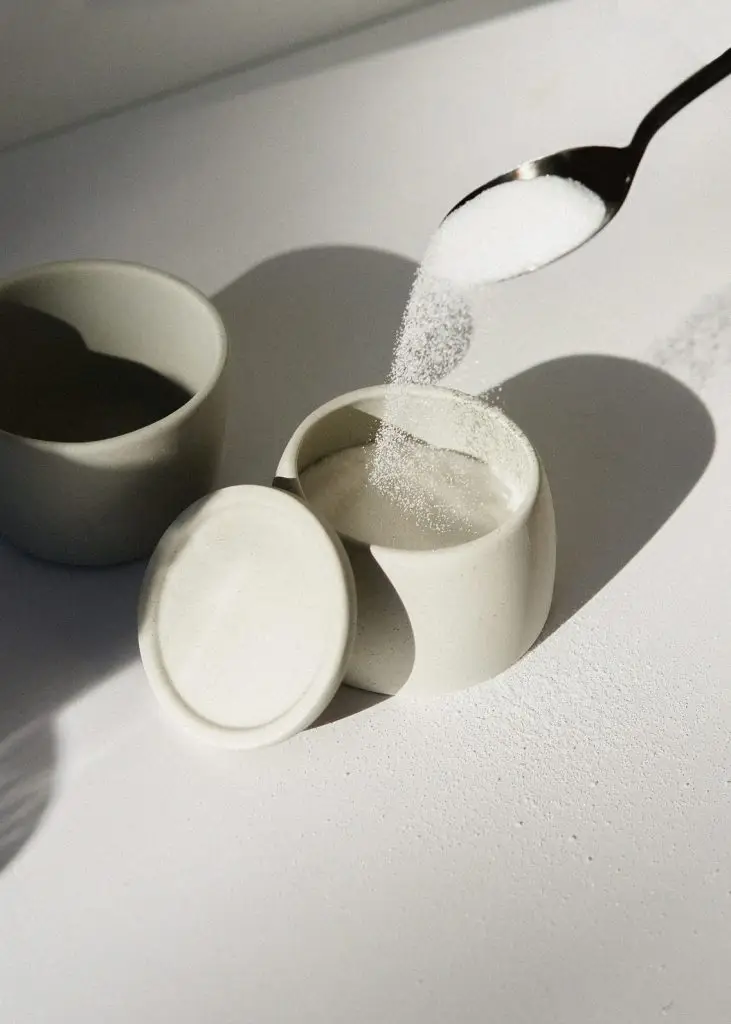
Lack of artificial sweeteners in the Philippine food supply linked to lower rates of mental illness compared to 1st world countries.
Filipinos Have Far Lower Incidences of Mental Illness Than Westerners Due to Lack of Artificial Sweeteners in Local Food Supply
Media Article for General Consumption Summarizing:
A Comparative Study on the Incidence of Bipolar Disorder, Borderline Personality Disorder, Obsessive-Compulsive Disorder, and Adult Deficit Hyperactivity Disorder in the Philippines Versus Western Countries: Exploring the Role of Artificial Sweeteners
Wagner et. al. 2024
Many Westerners living in the Philippines readily note the fact that local inhabitants are much more stress-resilient than those in their home countries. They easily deal with grinding poverty, abusive government, and frequent natural disasters that would make average “Joe’s and Jill’s” back in Chicago or Wichita go crazy. Americans, Brits, and Europeans marvel at how Filipinas, in particular, functionally accept and deal with what women back home disparage as an oppressive “Patriarchy” they insist holds them down societally and must be destroyed at all costs. For Filipino men, handling adversity that is part and parcel of daily life on the archipelago is the cornerstone of their existence, to be overcome with a smile, a bit of demonstrative head-scratching, and panacea expressions such as, “Bahala Na Si Batman” (God leaves it up to Batman).
After marveling for decades at why Filipinos do not hold the Western penchant for floundering about under self-induced disappointment, scientific scrutiny of the matter may have produced an answer. In a recent paper published by Author and Biophysicist R. Ballater Aegis, who resides in the Philippines overseeing his family’s charity, the reason turns out to potentially be quite surprising: no large-quantity consumption of artificial sweeteners that dominate foodstuffs in the rest of the world.
Mental health disorders such as Bipolar Disorder (BD), Borderline Personality Disorder (BPD), Obsessive-Compulsive Disorder (OCD), and Adult Deficit Hyperactivity Disorder (ADHD) have become significant public health concerns worldwide. While genetic predispositions and socio-environmental factors are often explored as underlying causes, dietary components, including artificial sweeteners and preservatives, have emerged as potential environmental influences. The Aegis study aimed to compare the incidence rates of such disorders in the Philippines and Western countries, exploring the role of artificial sweeteners as a pointed dietary factor that could contribute to these mental health conditions.
The comparative study integrates data from published health surveys, medical records, and food consumption reports put forth by respective governments and independent research entities. Incidence rates of BD, BPD, OCD, and ADHD were extracted from databases such as the World Health Organization (WHO) and regional health agencies. Data on artificial sweetener intake were collected from national food consumption surveys, trade reports, and food industry studies. Statistical analysis was used to examine potential correlations between artificial sweetener consumption and the incidence of these disorders while controlling for confounders such as healthcare access, socioeconomic factors, and cultural differences.
Supporting studies show varying prevalence rates of mental health disorders across regions. In Western countries, the prevalence of BD ranges between 3% and 4% of the adult population, while in the Philippines, it is less than 1%. BPD affects approximately 4.6% of the population in Western countries, with sparse data in the Philippines suggesting lower reported rates, potentially due to underdiagnosis. OCD prevalence is consistent globally at 2%-3%, while ADHD prevalence in adults ranges from 4% to 5% in Western countries but is estimated at 1.1% in the Philippines.
Artificial sweeteners such as aspartame, saccharin, and sucralose are widely used in processed foods and beverages under various brand names, such as “Sweet’N Low,” “Stevia,” and “Splenda.” Research suggests that artificial sweeteners may alter gut microbiota and disrupt neurotransmitter functions, thereby impacting the hypothalamus (mood-regulating area of the brain) and potentially affecting mental health. Animal studies have shown that aspartame consumption is linked to reduced serotonin levels and increased oxidative stress, which could exacerbate conditions such as depression, OCD, and ADHD. Western countries, with higher consumption of processed foods, typically report higher artificial sweetener intake than the Philippines, where traditional diets are still prominent.
Additional data yielded Western countries showing significantly greater artificial sweetener consumption, with an estimated average intake of 20g per person per week compared to 5g in the Philippines. The Philippines’ food supply includes fewer processed foods, and traditional meals are less likely to contain artificial sweeteners or preservatives. It was also noted that the Philippine government places extreme limitations on the amount of such substances allowed in the food supply, much more so than most other countries.
The study displays credible evidence that the higher incidence of ADHD and OCD in Western countries may partly reflect dietary influences as causal effects. Chiefly, artificial sweeteners may impact brain function through gut-brain axis dysregulation or neurotransmitter disruption. While the Philippines has far lower rates of these disorders, the role of other cultural and genetic factors cannot be ignored. It stands to reason, therefore, that Filipinos are able to enjoy better mental health simply because they eat fresher foods and steer clear of artificial sweeteners—a cautionary lesson Western countries could learn from.


